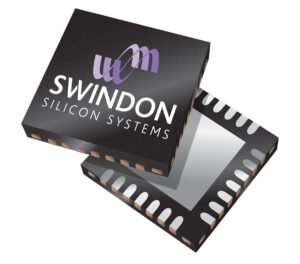It’s true that implementing an ASIC into a new, or existing, product involves multiple steps. From its initial specification and evaluation of first engineering samples, to prototype production and the final tape out, plus many more activities in between, the process may seem onerous first-time around. In reality, a full turnkey (FTK) custom integrated circuit (IC) provider is all a company needs to invest in, as Richard Mount, Director of Sales at Swindon Silicon Systems, explains.
Many steps go into creating a custom IC solution. Before an ASIC partner can even begin to consider the finished chip, they need enough detail to produce a full technical reporton the proposed design and supply process, including performance requirements andtarget package size and type. This information then determines the optimal waferfabrication process and provides insights into the production test requirements.
From this, the design team can begin to map out key milestones in the ASIC’s development. This includes the design of the analogue and digital circuits, chip partitioning requirements, form factor of the die, evaluation and qualification requirements, functional safety constraints and production wafer probe and packagetests. All these elements are determined before the design is started, resulting in adetailed development plan that helps the customer prepare their budgets and kickstart their own product development strategy.
Choosing the right partner
When looking for an ASIC specialist, there are many questions to consider. What ASIC company has the correct skillset for my application? Do I work directly with a foundry, or do I look for a fabless company that has access to many processes and geometries? Who will qualify the ASIC to industrial or automotive standards? And where do you go for validation and who does the production test of the ASICs?
These are all valid questions, and there’ll certainly be benefits and drawbacks to any route a customer chooses to take. However, to truly benefit from a seamless ASIC experience, customers are best opting for an FTK service.
So, what does an FTK service involve? Essentially, it encompasses every element of an ASIC’s supply and design under one roof. Each step is either completed by the in-house team itself or, if the semiconductor company is fabless, then the wafer processing andencapsulation is outsourced and managed by the in-house team. The customer only needs to commit to one provider that will handle the delivery of the project and the supply of the production IC.
From the customer’s perspective, they’re investing in an intricate product that requires several areas of expertise, all through a single provider. The design, layout and verification of the silicon, management of the foundry and packaging, production test, quality assurance, failure analysis and order fulfilment are all performed and controlledby the FTK supplier.

Taking ownership
Taking the FTK approach brings many benefits. Its underlying advantage, however, is your IC partner having total ownership of the ASIC process. An ASIC company that outsources any of the device’s design and production test may encounter challenges when field failures occur or if changes need to be made. Any ambiguity on who takes the responsibility of a field return may result in unexpected costs and ultimately customer dissatisfaction.
If any issues were to occur, you could find separate design and production testcompanies not wanting to accept liability, and resolving that issue becomes more challenging than it needs to be. In contrast, if any amends were required within an FTK process, the responsibility is undisputedly with the FTK ASIC supplier and the responsibility is solely on them to provide a timely resolution.
This capability also brings with it the assurance of non-obsolescence, a known issue in today’s electronic component market. FTK ASIC companies design with non-obsolescence in mind, but if the silicon process or packaging were to go obsolete, manufacturers have peace-of-mind that their FTK ASIC supplier will guide them throughthat process and provide a solution that will ensure continuity of supply.
For packaging obsolescence, it’s usually easy to find an alternative source. If the silicon process becomes obsolete, the ASIC supplier can suggest the best route to take, whether that’s purchasing a last time buy (LTB) of fully packaged chips, an LTB of wafers or porting the design onto a new process. Whichever route is chosen, which solely depends upon the commercial aspects of each individual occurrence, peace of mind is provided in knowing your FTK supplier will provide a solution and ensure continuity of supply.
Another principal benefit of using an FTK ASIC partner is to protect intellectual property (IP). An ASIC is extremely difficult to re-engineer for re-use in other designs. Here at Swindon, we provide customers full ownership of the completed system design toensure the IP of the final solution remains firmly in the customer’s possession.
At first glance, commissioning an ASIC may feel like a robust project that requires liaisonwith multiple experts. Opting for a FTK solution means this is much simpler. When considering an ASIC, it is essential to work with a full turnkey supplier, who can take responsibility for all aspects of the project, from initial consultancy, through to design, verification, qualification, production test and supply, for the lifetime of their product.
Learn more about Swindon’s FTK ASIC service and enquire about a no-obligation first discussion by visiting the website.
Telephone: +44 (0)1793 649400
Email: sales@swindonsilicon.com
